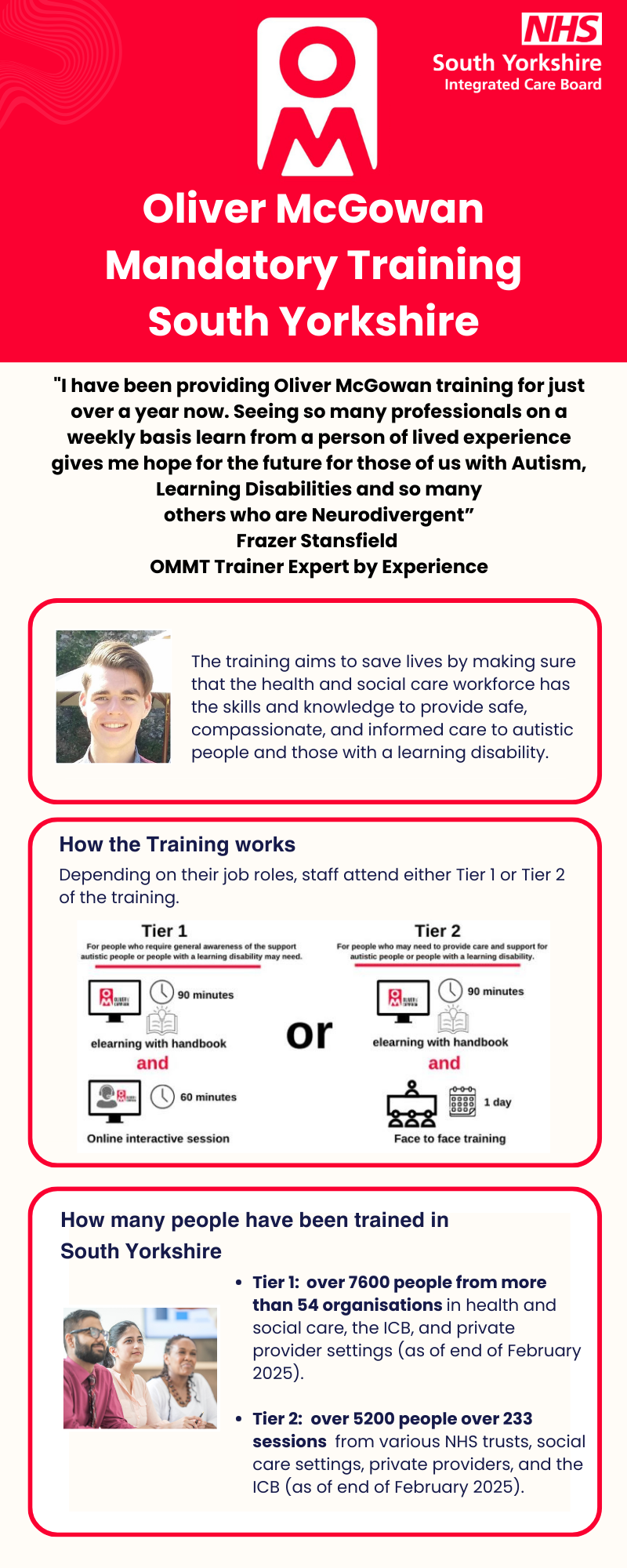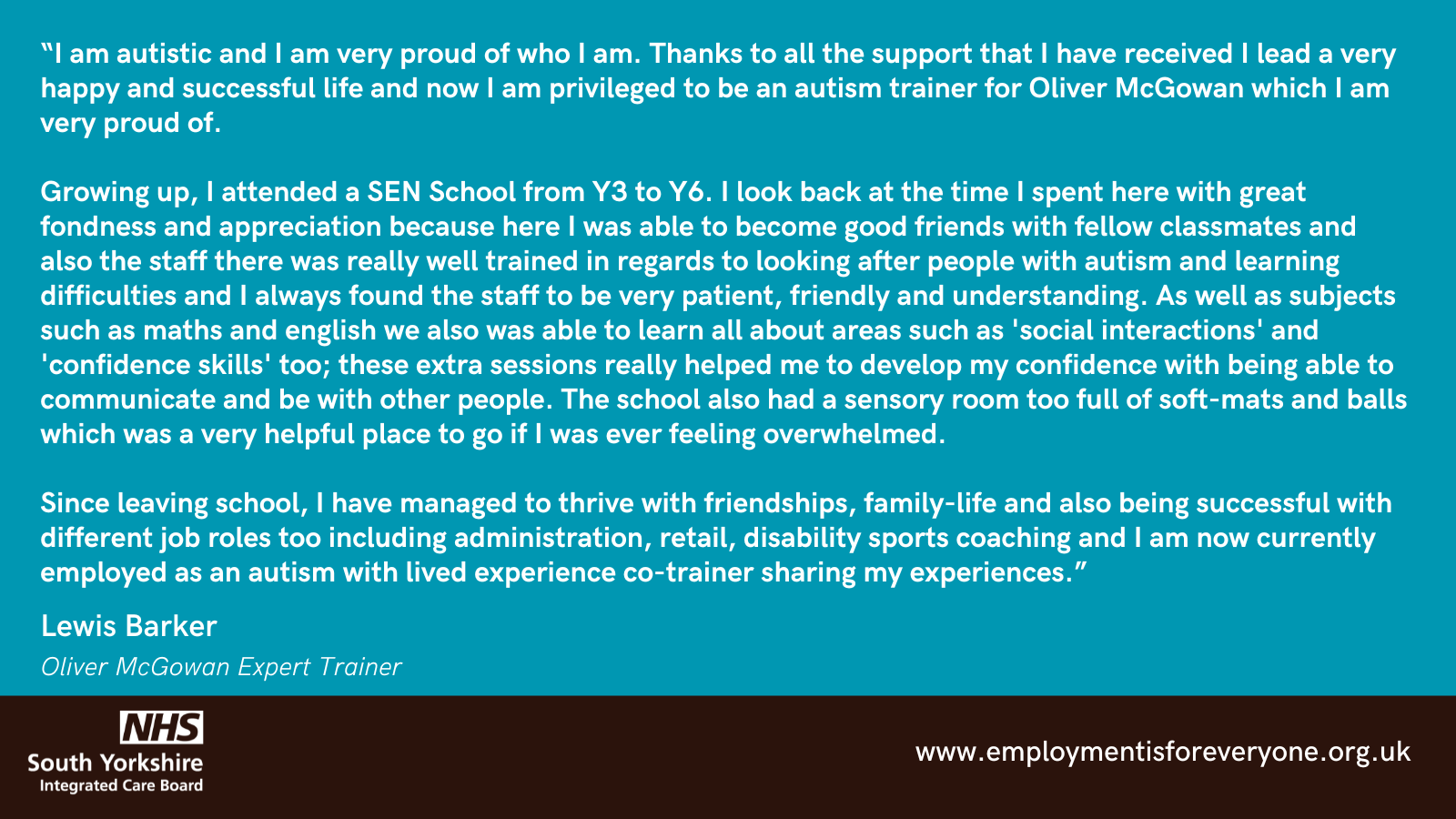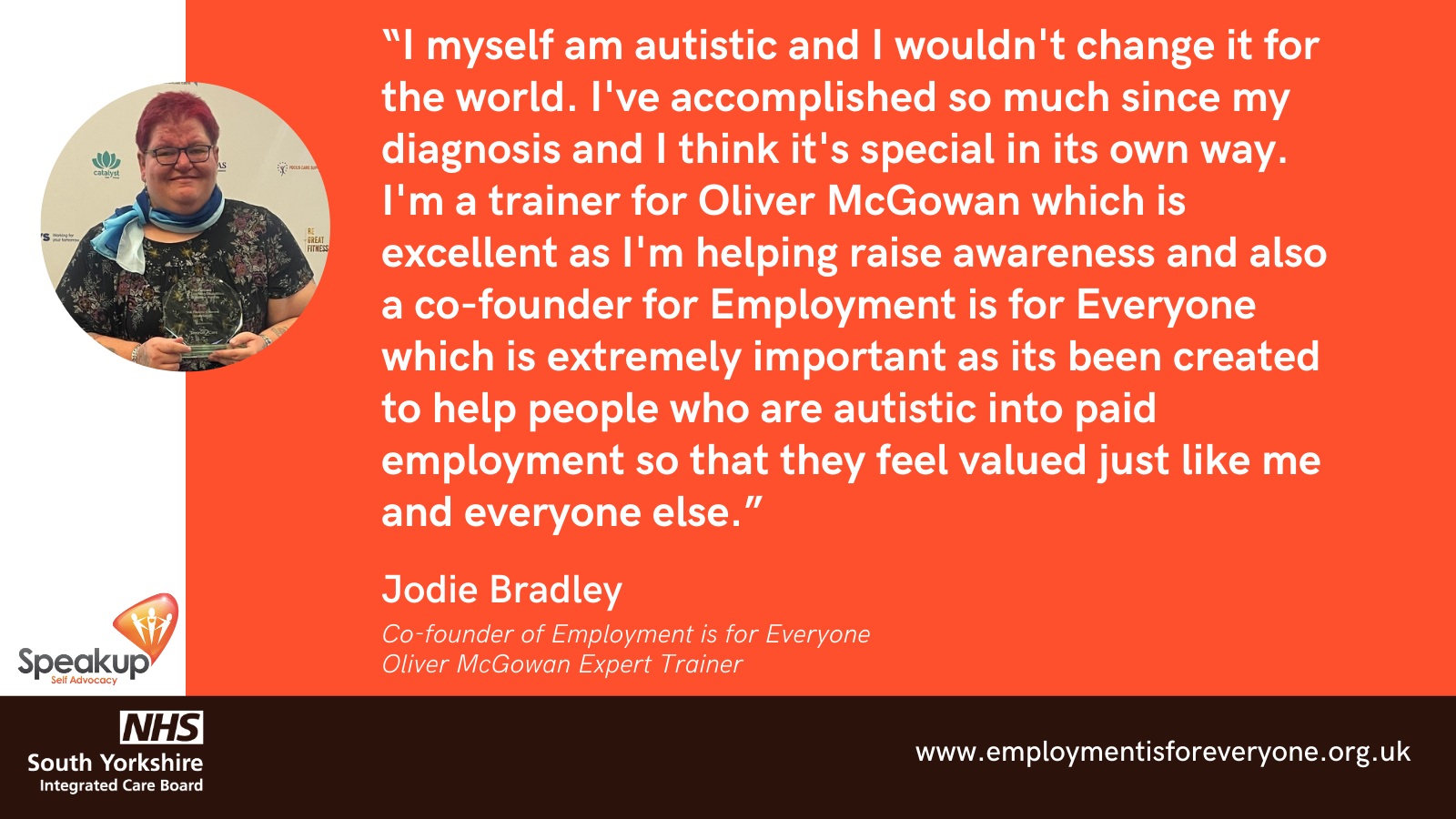April 2025 is World Autism Acceptance Month. World Autism Acceptance Month is an opportunity for everyone to come together and raise awareness, foster acceptance, and create a society where autistic people are supported, understood, and empowered.
Here are some statistics that highlight why it is important that we bring awareness and acceptance to autism:
- 8 out of 10 of autistic people experience mental health problems
- Only 26% of autistic pupils feel happy at school
- Only 30% of autistic people are in any type of employment

Below you will find information about the work we do to raise awareness and acceptance in South Yorkshire:
The NHS South Yorkshire Learning Disability & Autism Programme team have put together a calendar of events for you to access throughout the month. To start your journey of awareness, please open the attached World Autism Acceptance Month interactive calendar which you can view on the PDF below:
Sheffield Autism Festival 15, 16 and 17 April
The city is coming together for the first Sheffield Autism Festival from Tuesday, April 15 to Thursday, April 17 as part of World Autism Acceptance Month.
There will be a series of events and activities spread over the three days hosted across various venues near the city centre in collaboration with Sheffield Hallam University.
The festival aims to empower, support and celebrate Autistic people, improve others’ understanding of autism, and inspire action to make Sheffield a more autism friendly city.
Events and activities have been organised sensitively for Autistic people, with a quiet room and limited numbers of people. Speaker events will also be recorded and made available online after the festival.
Tickets are limited and bookable via Eventbrite https://www.eventbrite.com/o/sheffield-cares-104233364621
The festival programme includes:
Learn how to make Sheffield more autism friendly, April 15
A drop-in session at Sheffield Town Hall between 10am and 4pm where you can learn about the services and support available in Sheffield for Autistic people and their families and carers. A range of services and voluntary groups that provide support for Autistic people will be available to speak to. There will also be a quiet room available. No booking required.
Autism Experience Bus, April 15, 16 and 17
This unique experience offers insight into how some neurodiverse people perceive the world. This experience encompasses a wide range of perspectives. It was developed in partnership with more than 100 people with various neurodiverse diagnoses, sensory occupational therapists, and the National Autistic Society. It will be especially beneficial for staff and services working with Autistic people who would like to improve understanding of how they experience services.
A series of talks delivered by Autistic people and those working with Autistic people on topics such as:
- Supporting Autism-Friendly Services
- Neuro-inclusion in Employment, Higher Education & Research
- Breaking Barriers: Addressing the Challenges of Accessing Health, Education and Social Care for Young Autistic Persons and their Families
- Benefits of Inclusive Employment
Art Exhibition, April 15, 16 and 17
At the Stoddart Building, Sheffield Hallam University, Howard Street, Sheffield City Centre, Sheffield S1 1WB. No booking required.
Other activities including nature walks and a gameboard session for Autistic people, led by Autistic people. To book please visit Eventbrite here https://www.eventbrite.com/o/sheffield-cares-104233364621
If you require further information please contact Gabriella Wattam on Gabriella.Wattam@sheffield.gov.uk or ahscleadershipteam@sheffield.gov.uk
Everyone at Training2Care is excited to collaborate with NHS South Yorkshire to provide access to the life-changing Autism Reality Experience (ARE) through the Partnerships for Inclusion of Neurodiversity in Schools (PINS) project.
This unique experience offers insight into how neurodiverse people perceive the world. Developed in partnership with over 100 people with various neurodiverse diagnoses, sensory occupational therapists, and the National Autistic Society, this experience encompasses a wide range of perspectives.
The goals of the PINS project - to support participating mainstream primary school staff to improve outcomes for neurodivergent children, to foster inclusivity and to enhance communication with parents and carers - align perfectly with our mission for the Autism Reality Experience.
Over the years, Training2Care have provided access to this experience for thousands of individuals, helping them build empathy and understanding. The South Yorkshire PINS project enables them to continue this vital work. We encourage all staff with the opportunity to, to participate in the experience. It will profoundly change your perception and understanding of neurodiversity.
The ARE bus will be at a number of locations throughout World Autism Acceptance Month providing the experience to schools and workplaces. Following Autism Acceptance Month, we will have a write up and pictures from the bus, please check back.
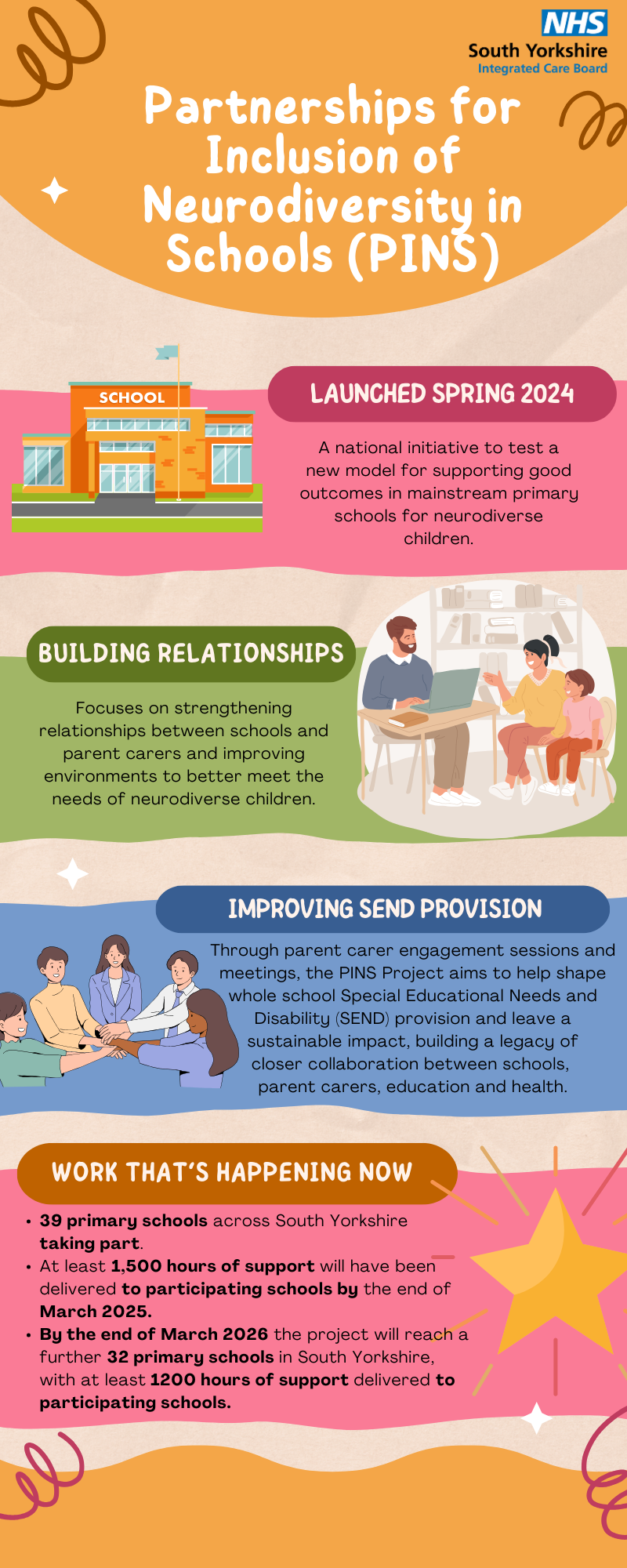
Barnsley Hospital NHS Foundation Trust Oliver McGowan Mandatory Training Case Study
Click here to read a case study from Barnsley Hospital about how they have supported staff to access the training
Employment is for Everyone is a social movement aiming to improve the employment opportunities for autistic people and people with a learning disability.
We know the positive difference employing people with learning disabilities and autistic people can make to a business and we want to share our knowledge and skills to encourage businesses to do the same.
We have created a website to which shares useful information for autistic people, families and employers. www.employmentisforeveryone.org.uk
On this site you will find:
- Information about our enterprises
- Films about the benefits of employing people with learning disabilities and autistic people
- Signposting and resources to help you
- News and events
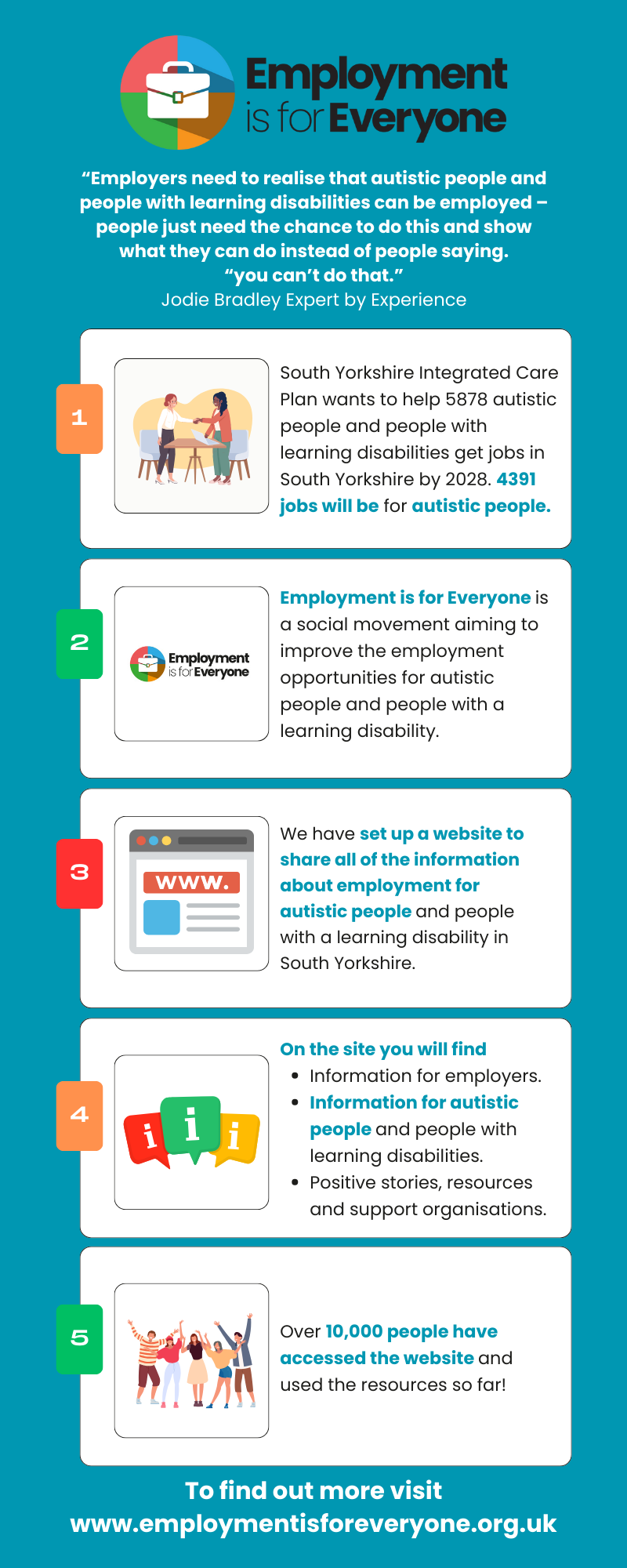
Research from all over the world suggests that around 35% of people suffering from an Eating Disorder also have Autism or high autistic features.
Avoidant Restrictive Food Intake Disorder(ARFID) is when someone avoids certain foods, limits how much they eat or does both.
Beliefs about weight or body shape are not reasons why people develop ARFID.
Possible reasons for ARFID include:
- negative feelings over the smell, taste or texture of certain foods
- a response to a past experience with food that was upsetting, for example, choking or being sick after eating something
- not feeling hungry or just a lack of interest in eating
ARFID is more common in children with autism.
This leaflet has been produced by Yorkshire and the Humber Clinical Network, in collaboration with parents and carers of young people with ARFID, to gather the best tips and insights into helping families of young people with ARFID.
This video explains more about ARFID.
Find more resources here
In recognition of Neurodiversity Week, ACAS have launched a toolkit full of a range of posters and guides to raise neurodiversity awareness for employees, managers and employers.
With around 1-in-7 people in the UK being neurodivergent, creating inclusive workplaces benefits both employers and employees.
But ACAS research shows that 45% of line managers lack organisational knowledge about neurodiversity and 59% did not know how to make reasonable adjustments to support neurodivergent employees.
Access the Toolkit here – including guidance, videos, posters, social media content and more
- National Autistic Society: https://www.autism.org.uk/
- Autistica: https://www.autistica.org.uk/
- Autscape ( run by autistic people): https://www.autscape.org/
- Autistic Parents UK: https://www.autisticparentsuk.org/
- The Sheffield Autism Partnership Network (SAPN) which also has lists of resources: https://sapn.org.uk/
- https://www.ambitiousaboutautism.org.uk/what-we-do/awareness/small-changes-big-difference
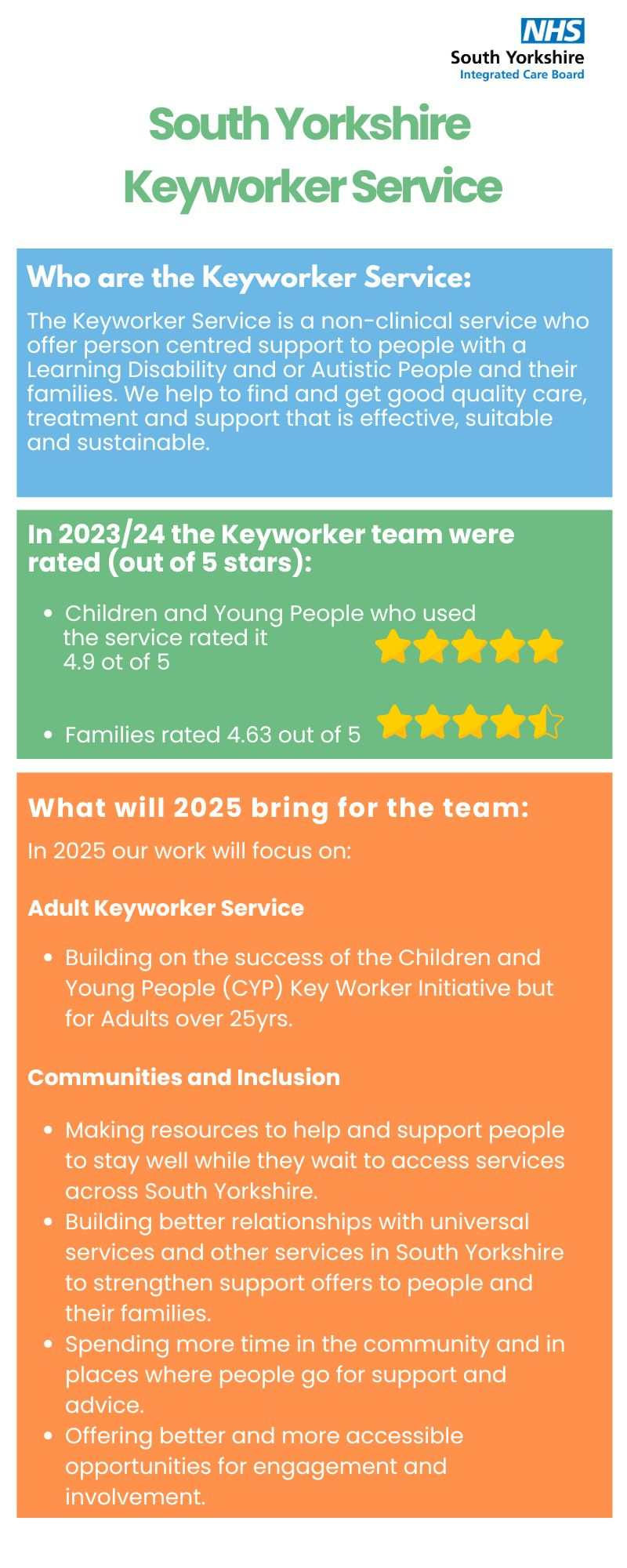
Rebecca Jilks is a final year architectural masters student at the University of Sheffield specialising in neuro-inclusivity.
Rebecca's current project is designing a support hub for Sheffield's Autistic community. She is exploring how architectural design can accommodate for sensory autonomy and unmasking, in particular for late diagnosis women.
Click below to read 'Dede is Autistic' and find out more about the project:
Kooth (CYP) is a helpful platform for individuals experiencing mental health difficulties
related to their neurodivergent condition or SEND.
If someone has any neurodiverse conditions or learning needs, we would look to adapt our
approach to their strengths and explore ways to accommodate their needs. This may
include:
● Adaptations to the SU’s cognitive difficulties
● Adapting how we present information and allowing for more processing time
● Enhanced use of visual information and material
● Break-down of material/interventions in smaller steps
● Use of simple language to accommodate the SU’s abilities
● Relying more on concrete/less abstract language
● Allowing in-session breaks etc.
Find out more on the links below:
So you have just found out you are neurodivergent - now what?
Eight neurodivergent people talk about what being neurodivergent means to them
Case study: how I accepted myself as a neurodivergent disabled person
